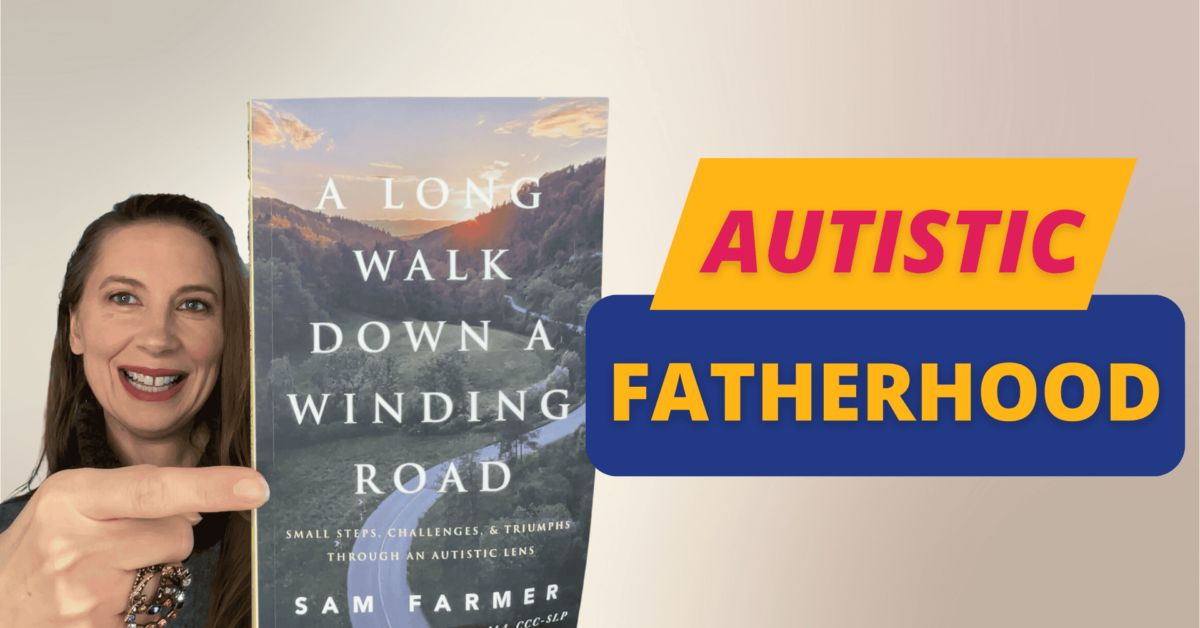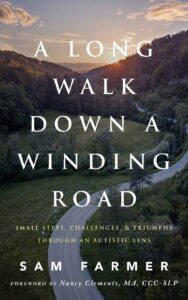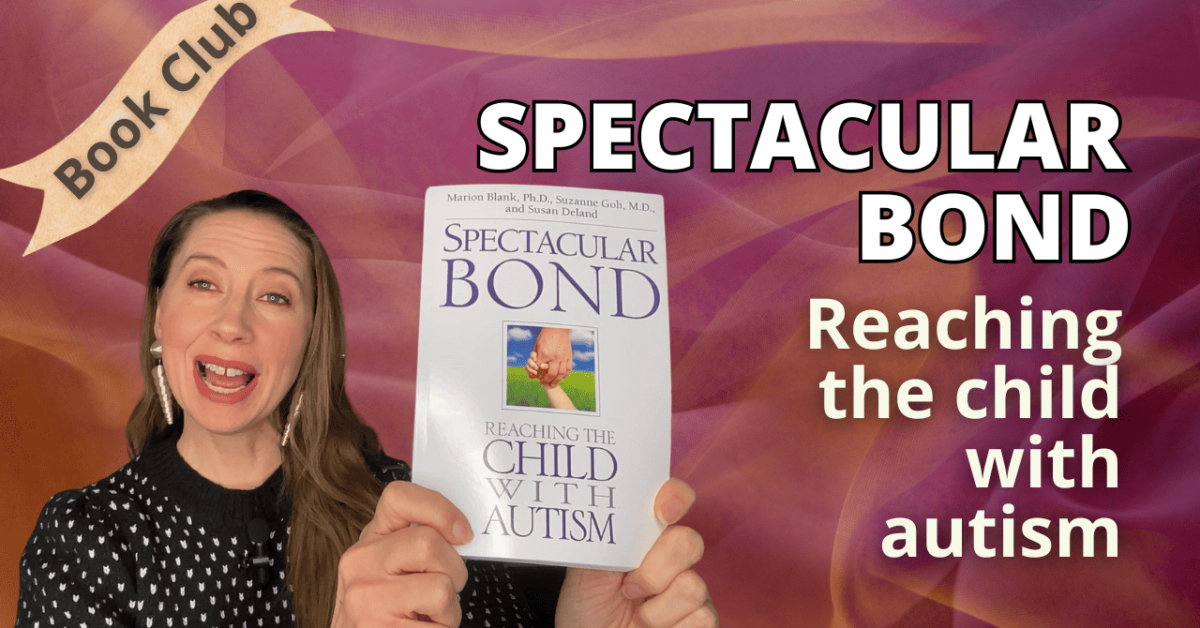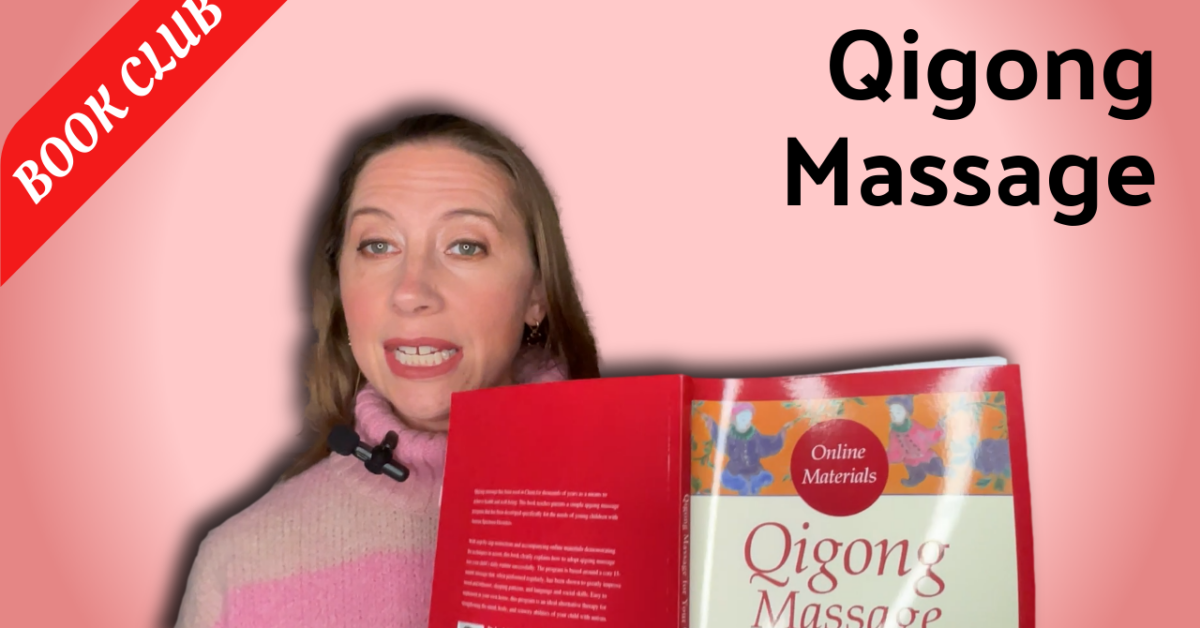It’s book club time. Thank you for voting on the book. If you’re on my email list, you get to vote on what books I read and summarize for you in these videos.
This month, the book is A Long Walk Down a Winding Road, written by Sam Farmer.
Now, I spoke with Sam Farmer probably maybe two years ago or so, and I like speaking with people and understanding their perspectives and… He very willingly had a conversation with me. I knew he had a book, so when I reached out to him, I was happy that it was well received that I was asking him to speak with me. We spoke about his life and his experience with autism, and then he referred me to his book.
I read it. It was great. You all thought it would be interesting to read, and so read it again. It definitely is a quick read. It’s not a huge book, but it’s a good book for sure.
Juggling multiple roles with autism
One of the things that’s really interesting about Sam is that he’s a husband, a father, a computer consultant, musician, and he also has autism. He goes on in his book to give perspective from the autistic view of those different roles. What does it mean to be a husband when you have autism? What does it mean to be a father when you have autism? Working, all of this, he really lays out his perspective of life in these different roles while learning late in life that he has autism.
Getting diagnosed
He was about age 40. He had been married for nine years, and he had a one-year-old. And this is when certain situations got very challenging. And so his wife was starting to hint to him, maybe something’s going on that we should explore. And the real interesting part is the wife is wondering what’s going on with the husband because he’s struggling with certain aspects of parenting. And the wife is also looking at her one-year-old son saying, I see some similarities in our son that I see in you. So this is a very unique perspective in that Sam is a father who has autism, and it turns out he also has a son with autism. I’ll definitely let you read about that in the book.
Searching for success
A really great part of the book is when he talks about how does someone succeed. Now, he uses the word Aspi, and obviously, Asperger’s is no longer a diagnosis. It’s all under the umbrella of autism. But he talks about how can I be successful. And it’s really inspiring to see him take that mindfulness approach to his life in so many different aspects.
So we’re all probably familiar with the statistics that about 80% of those with autism are either underemployed or unemployed. He really has this commitment to striving in life and to growing and learning that he talks about in this book, and I think it’s absolutely fantastic. He goes into personal growth and the different therapies that he’s tried and the teamwork between him and his wife as to what should he do next in the sense of he’s not trying to fix himself. It comes from a really great place of him loving himself and just wanting to grow in the world, just wanting to grow as a person and be better, not because he feels he’s less than, but because he wants to just grow and be the best version of himself that’s possible. So he has this really natural approach to growing in life that I think is really valuable and often not discussed in the autism community.
Learning to Love Myself
Chapter 4 is titled Learning to Love Myself. So he goes even deeper as to his approach. So when you have a diagnosis, it certainly is easy to think, “Well, I’m not like everybody else. There’s something wrong with me. I’m deficient…” And he writes about how he’s worked on his self-esteem. And he’s really honest, and the endpoint is really great. So he takes you through that winding path of getting to that destination of loving oneself.
A thoughtful approach to career growth
I also think this book is great for anyone in their 20s and just starting to get out into the workforce because he has a chapter here that goes into different questions about jobs and whether I should apply for a stretch job. If you find yourself looking at your watch all the time during the day, maybe that’s a notification to yourself that you don’t really like your job. So how can you enjoy your job? How can your job help you to grow, enjoy life and contribute? He goes through a lot of these questions that we all have in the beginning of our work careers and he has a really thoughtful approach to them.
So this book, I certainly recommend. I think it’s a great read. I think it gives insight into so many different aspects of autism from a loving perspective. And he’s really a great person. And I’m very happy he wrote the book, and I’m very happy to recommend it.





